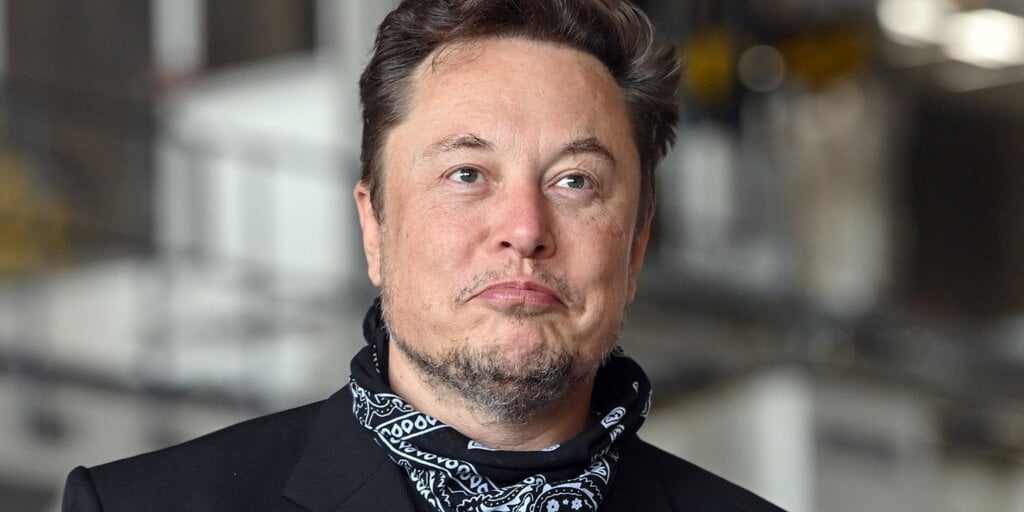AI 🌪️Thursday Buzz: Meta's Government Push, Perplexity's Plagiarism Dilemma, Waymo's Robotaxi Training, and Musk's Robot Forecast
1. Meta advocates for government adoption of its AI technology.
2. Perplexity's CEO avoids clarifying the definition of 'plagiarism.'
3. Waymo investigates leveraging Google’s Gemini for robotaxi training.
4. Tesla's Elon Musk forecasts that robots will surpass humans by 2040.
Keep reading for deeper insights!⚡
Welcome to another exciting Thursday in the world of AI! Today, we’re diving into the latest developments that are shaping the future of technology. From Meta’s ambitious push to integrate AI into government operations to the intriguing discussions around plagiarism raised by Perplexity's CEO, there’s much to unpack. We’ll also explore Waymo’s innovative use of Google’s Gemini for training its robotaxis and Tesla CEO Elon Musk’s bold prediction that humanoid robots will outnumber humans by 2040. Buckle up as we journey through today’s AI Buzz!
1. Meta advocates for government adoption of its AI technology.
Meta CEO Mark Zuckerberg announced during Meta’s Q3 earnings call that the company is working to implement its Llama AI model across various US government sectors. Meta has partnered with the US State Department to support initiatives like expanding access to safe water and improving business support. Discussions with the Department of Education also explore using Llama for simplifying financial aid processes. While competitors like OpenAI share models with the AI Safety Institute, Meta’s next Llama model promises faster, more robust performance in 2025. Meta’s Q3 revenue climbed to $40.5 billion, marking 19% growth year-over-year.
/cdn.vox-cdn.com/uploads/chorus_asset/file/25263315/STK169_Zuckerberg_B_CVirginia.jpg)
2. Perplexity's CEO avoids clarifying the definition of 'plagiarism.'
Perplexity CEO Aravind Srinivas defended the platform’s use of summarized content at TechCrunch Disrupt 2024, stressing that it cites sources and doesn’t claim ownership. Amid lawsuits from publishers like Dow Jones, Srinivas emphasized Perplexity’s commitment to collaboration with media companies and transparency in citations, despite occasional errors. While Dow Jones accused Perplexity of “content kleptocracy,” Srinivas argues the platform helps users interpret news impacts, such as on financial trends. With 100M weekly searches and plans for a $500M funding round, Perplexity aims to “universally distribute facts,” challenging traditional publishing boundaries.

3. Waymo investigates leveraging Google’s Gemini for robotaxi training.
Waymo’s latest innovation, EMMA (End-to-End Multimodal Model for Autonomous Driving), leverages Google’s Gemini AI to train its robotaxis. Unlike traditional models, EMMA learns from diverse internet data rather than solely programmed rules, giving it adaptability in dynamic environments. With its natural language processing, EMMA can receive text-based driving instructions about conditions like weather and road layouts. Although it’s proven effective in tests, the model still faces challenges, such as limited image processing and the inability to handle 3D data from LiDAR or radar. Further research is underway to ready EMMA for real-world, autonomous driving scenarios. #Waymo #AutonomousDriving

4. Tesla's Elon Musk forecasts that robots will surpass humans by 2040.
Elon Musk envisions a future where humanoid robots outnumber humans by 2040, predicting that they’ll become integral to economies worldwide. Speaking at the Future Investment Initiative, Musk emphasized the limitless potential of intelligent robots. While optimistic, experts like cognitive scientist Gary Marcus caution that affordability, safety, and technical hurdles might make Musk's vision difficult to achieve soon. Marcus argues that we aren’t close to building safe, useful robots for mass consumption, citing the popularity of simpler robots like Roomba. Musk’s forecast inspires excitement and debate, highlighting the balance between innovation potential and practical constraints in robotics.

As we wrap up today’s exploration of the latest AI news, it's clear that innovation is moving at an incredible pace. From government partnerships to the ethical implications of AI usage, the landscape is evolving rapidly. With companies like Meta, Waymo, and Tesla leading the charge, the potential for AI to reshape our world is immense. As we continue to monitor these developments, one thing is certain: the intersection of technology and society will only grow more complex and intriguing. Stay tuned for more updates and insights as we navigate this exciting frontier together!






